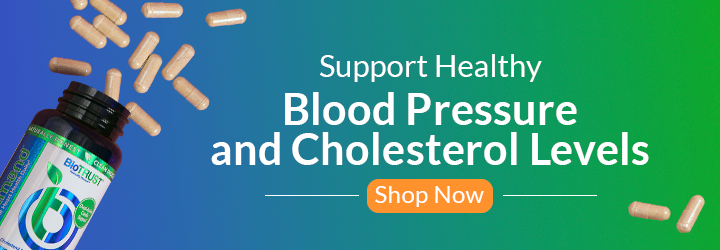6 Mental Exercises to Reduce Stress and Enhance Heart Health

There’s a complex and significant relationship between mental and heart health. For example, research indicates that mental health can have a profound impact on cardiovascular health and vice versa. This starts with the stress response.
Chronic, overwhelming stress can lead to high blood pressure, arterial damage, and even an irregular heart rhythm. This response also involves a release of adrenaline and cortisol. While these chemicals have important roles in the body, if levels remain high and persistent, they can strain the blood vessels and heart.
In addition, stress and depression have been linked to excess inflammation. Inflammation, in turn, is a key factor for the buildup of plaque in the arteries that increase the risk of heart attacks and strokes.
It works the other way as well. If you are struggling with your mental health, it can influence behaviors that affect heart health. For instance, people who are dealing with depression or anxiety may be more likely to engage in unhealthy behaviors, including excess alcohol consumption, eating ultra-processed foods, smoking, or remaining inactive.
Plus, if they are given medications to help relieve symptoms, side effects can include weight gain, increased blood sugar levels, and elevated blood fats. These side effects could increase the risk of heart disease.
We can’t forget the damaging effects of loneliness and social isolation, either. The lack of social support can increase levels of stress, leading to greater negative impacts on mental and heart health.
Finally, there are direct effects on the heart. For instance, depression has been linked to an increased risk of heart disease. Plus, it may worsen outcomes for people who are already experiencing heart conditions.
Taking Your Heart and Head into Your Own Hands
Fortunately, there’s much we can do to promote mental and heart health. A holistic approach that includes lifestyle changes and stress management techniques, for instance, can help. Professional healthcare support can also benefit both mental and heart health. Here are just a few steps we can take:
- Exercise regularly: Exercise is a powerful tool that’s been shown to boost heart health by lowering blood pressure and enhancing cardio fitness. It also releases endorphins, which then reduce stress, lower anxiety, and decrease symptoms of depression.
- Eat healthfully: A diet that’s rich in veggies, fruits, quality proteins, high-fiber whole grains, and healthy fats can help reduce the risk of heart disease and has a powerful effect on brain function. Foods like leafy greens, berries, nuts, and fatty fish may be especially beneficial as they provide key nutrients.
- Reduce stress: Mindfulness, yoga, deep breathing, and tai chi are all exercises that can help reduce stress and improve mental health. But they’re also great for heart health as they’ve been shown to reduce blood pressure and help mitigate the effects of stress on the body.
- Prioritize sleep: Getting good quality sleep—and enough of it—is crucial for mental and heart health. In fact, it’s vital for overall health. Poor sleep, on the other hand, can increase the risk of heart disease and negatively impact mood, stress levels, and cognitive function.
- Create strong social connections: Maintaining positive relationships and a supportive social network can improve mental health by promoting a sense of belonging. Research has found that people with strong social ties also have a lower risk of heart disease.
- Manage your time: Learning how to efficiently manage time can reduce stress and anxiety, which supports mental health. In addition, it can free up time for activities that can benefit mental and heart health, including regular exercise and healthy meal prep.
Other lifestyle factors that can help improve overall health are limiting alcohol and avoiding tobacco, which can significantly benefit your heart and mental health.
Regular visits to your healthcare provider can also help you monitor and manage risk factors for heart disease, such as high blood pressure, high triglycerides, and diabetes. And when necessary, therapies such as counseling and cognitive behavioral therapy (CBT) can help promote mental health.
Remember, small, consistent changes can make a big difference in your mental and heart health over time. However, if you are dealing with significant health issues, it’s important to consult with a trusted healthcare professional who can provide personalized advice and support.
6 Exercises to Reduce Stress and Enhance Mental and Heart Health
There are specific health exercises that can help you directly address stress to potentially improve mental and heart health. Adding these exercises into your routine can also enhance overall well-being, which can reduce risk factors that are associated with heart disease. These include:
- Mindfulness Meditation: Paying attention to the present moment and allowing it to simply be, without judgment, has been found to reduce stress, anxiety, and symptoms of depression. It may also lower blood pressure and improve heart rate variability. The more often you practice, the better you’ll get, and the greater the benefits over time.
- Deep Breathing Exercises: When stressed, many of us breathe shallowly, making us feel more stressed. Learning to take a long, deep breath or practicing deep breathing exercises like the 4-7-8 technique, on the other hand, activates the body’s relaxation response. This then reduces stress and may even lower blood pressure. Deep breathing can be done anywhere, any time, and it only requires a few minutes to positively affect your mood and stress levels.
- Guided Imagery: Focus on pleasant images and connect with your body to replace negative or stressful feelings. Again, this type of deep relaxation can help reduce stress and has been used to lower blood pressure and promote heart health.
- Yoga: By combining physical postures with deep breathing and meditation, yoga is well known for helping reduce stress and has been found to improve several aspects of heart and overall health. This includes improving blood pressure, lipid levels, and physical fitness.
- Tai Chi: This form of exercise involves slow, gentle movements combined with deep breathing. It’s highly effective when it comes to the reduction of stress and anxiety. Again, it’s been shown to benefit mental and heart health.
- Social Activities: Let’s face it, it’s all too common to gather with friends or family to enjoy food or a drink or two. As a fun and healthy alternative, you can chase away feelings of stress and loneliness by getting out and enjoying an activity with friends or family. For instance, you can:
- Dance
- Walk
- Hike
- Bike
- Bowl
- Play tennis or pickleball—you may even want to sign up for a recreational league
- Take a yoga, Pilates, or other fitness class. You could also sign up for a boot camp workout
- Join group sports, such as soccer, volleyball, basketball, and Frisbee golf
- Try an adventure sport like rock climbing, rafting, or skiing
- Create a fitness challenge, such as counting steps, getting in a set number of workouts for the week, or creating a monthly fitness goal. Use an app to track your progress and keep each other accountable.
Engaging in fun activities with friends not only helps you improve your physical health, it also strengthens social bonds and supports mental well-being. Plus, it’s a great way to challenge each other so you stay motivated.
Mental and Heart Health Exercises Recap
The intricate dance between mental and heart health requires attention, awareness, and action. By integrating mental and physical exercises into our daily routines, we can better combat stress and enhance heart health. In turn, we’re setting the stage for a more vibrant, fulfilling life.
Whether you choose mindfulness, deep breathing, regular exercise, or good times with friends—or preferably a combination of all the above—you’ll be taking a big leap toward a healthier heart and a more peaceful mind.
Again, the small, consistent efforts pave the way for significant changes… one step at a time. And in the journey of enhanced wellness and well-being, every step counts.






